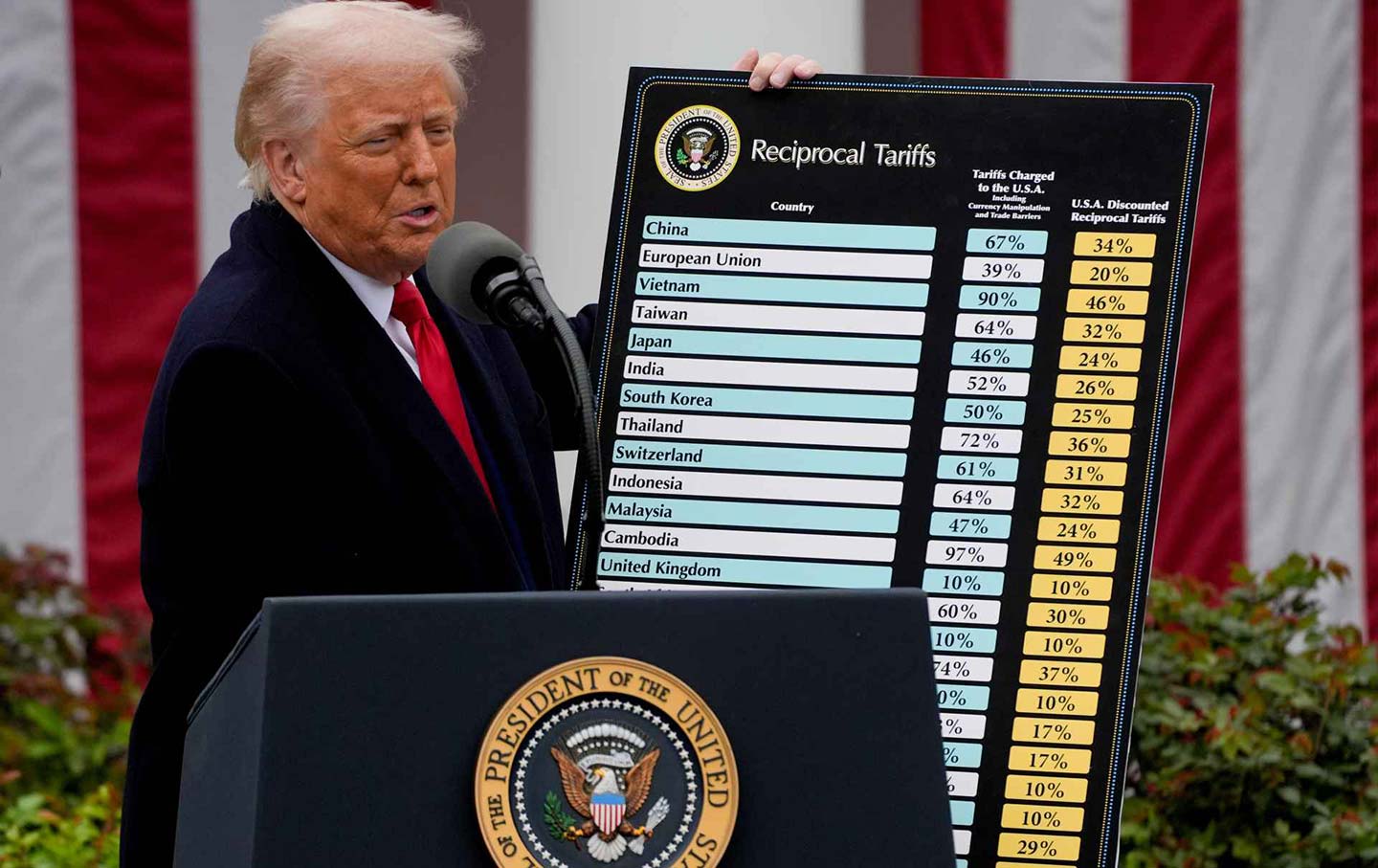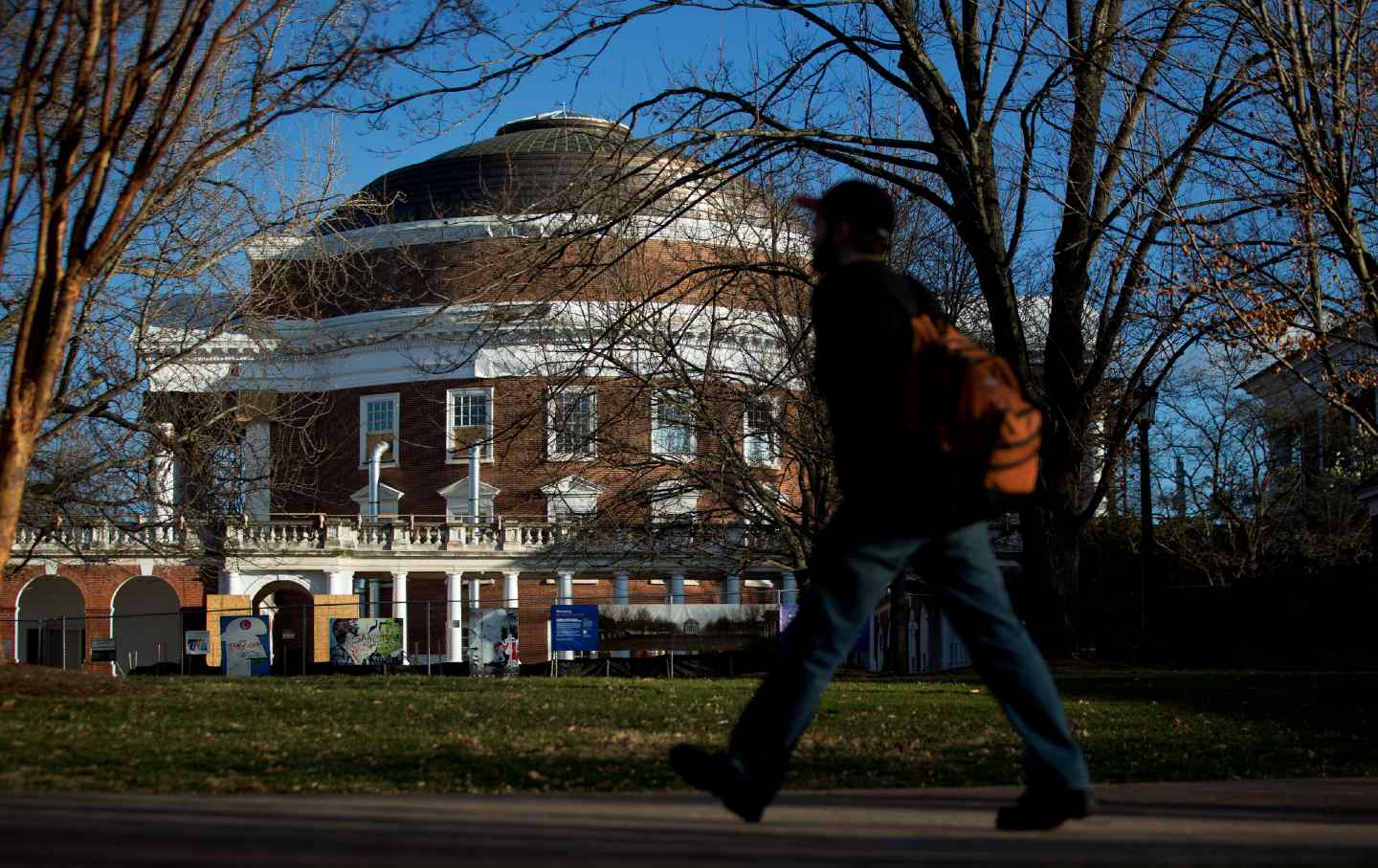More Democracy, Not the Courts, Will Defeat Trump’s Authoritarianism
The pursuit of legal liberalism is a distraction from mobilizing a majority coalition against a would-be dictator.

Ordinary Americans will have their final chance to vote in the likely rematch between Joe Biden and Donald Trump on November 5, but a special class of citizens—judges—are already casting their ballots in ways that will be shaping the outcome of that race. On December 19, the Colorado Supreme Court ruled in a 4-3 decision that Trump was disqualified from running for the presidency based on the insurrection clause in the 14th Amendment to the Constitution. In the earlier non-criminal finding that served as the basis for this decision, a Colorado court had ruled that Trump’s incitement of the January 6 attack on the Capitol constituted insurrection. As a result, Trump is barred from even appearing in the Republican primary ballot in Colorado, let alone the state’s presidential ballot. On Thursday, the Michigan Supreme Court came to the opposite conclusion, refusing to hear arguments disqualifying Trump on the ballot. The Colorado case is expected to move to the Supreme Court. The liberal group Free Speech For People, which filed the Michigan case, plans on further litigation. Also on Thursday, the secretary of state of Maine declared that Trump was not qualified to be on the ballot, again on 14th Amendment grounds.
There are reasonable grounds to believe that the Colorado decision had both logic and law on its side. Trump’s attempts to overthrow the results of the 2020 election are surely insurrectionary, if the word has any meaning—despite the fact that he’s yet to be convicted of that offense in a criminal case. Astute analysts, such as Brian Beutler and my Nation colleague John Nichols, have cogently argued that Trump’s behavior clearly falls under the strictures of the 14th Amendment.
But there’s a difference between an argument being legally plausible and politically wise. Ultimately, the arbiter of what the law means are judges. The divergent decisions in Colorado, Maine and Michigan speak to the lack of consensus. In political terms, Michigan is far more consequential. In 2020, Joe Biden won Colorado in a landslide, getting more than 54 percent of the vote while Donald Trump got a shade under 42 percent. Biden also won decisively in Maine, 53 per cent to 44 per cent.
Michigan, by contrast is a swing state which Trump won in 2016 and Biden only narrowly won in 2020 with 50.6 per cent as against 47.8 per cent for Trump. In other words, even if the Colorado and Maine decisions hold, they’ll likely bring no benefit to Biden, while the Michigan decision leaves the state an essential battlefield that Democrats will have to pour their hearts and souls into to win again.
Writing in The Nation, Elie Mystal, a keen watcher of the machinations of the courts, is pessimistic that even the Colorado decision will survive a Supreme Court review. Mystal’s expert judgment is that there is a “fool’s chance” that the conservatives on the court (John Roberts or Neil Gorsuch) will take a principled stance that accepts the fact that upholding the Colorado decision is in keeping with their own frequently articulated commitment to textualism and “states’ rights.”
Mystal’s analysis raises the question of whether a defeat in the Supreme Court might now be worth more than a victory. After all, an affirmation of reactionary doctrines such as textualism and states’ rights are hardly to be welcomed by liberals or leftists if the only benefit is giving Biden a sure victory in a state he was already on track to winning. Better to have the reactionaries in the court revealed as the hypocrites they are than to win such a dubious prize.
The doctrine of states’ rights has often been used by reactionaries in the courts to limit civil rights, including voting rights for African Americans. Do we really want a reaffirmation and strengthening of states’ rights—with all the long-term damage that would entail?
In any case, the focus on a 14th Amendment remedy is misguided—an attempt to win a battle on the hostile terrain of the Roberts Supreme Court that actually undermines the larger cause of anti-Trumpism. Yale law professor Samuel Moyn has frequently criticized liberals for trying to get the law to do the work of politics. Writing in Compact, he noted:
The ruling sets up a dangerous new version of an all-too-familiar scenario: It transforms what ought to be a national referendum on the future of the country into a national spectacle of how judges will interpret a provision from its past. Doing so might for a moment save liberals—and, if the US Supreme Court goes along, conservatives, too—from their nonnegotiable responsibility to win power by winning elections. But it would do so by putting the very democracy such forces purport to want to save at greater risk and only postpones the need to rule by legitimate means, rather than through legal hijinks.
Moyn’s argument rests not just on the issue of likely legal outcomes but also the underlying sources of Trump’s authoritarian danger. Trump and the larger Republican rejection of democracy—evident both in Trump’s presidency and the 2021 attempted coup—are not (despite the frequent misuse of the term by some pundits) populist threats of a mass movement with majority backing. Trump has never actually won the popular vote; instead, he has benefited time and again from the very counter-majoritarian (and anti-populist) institutions that thwart American democracy. It was the Electoral College that made Trump president—and that keeps him a viable candidate. It was the Senate, dominated by small states, that prevented Trump’s two impeachments from ending in conviction. The stacking of our unelected federal courts with reactionary judges was the chief political legacy of Trumpism—and one that ensures that his shadow will dominate policy for decades to come on issues such as abortion and voting rights. The Electoral College, the unrepresentative Senate, a gerrymandered House of Representatives, and the outsize power of the unelected courts are the foundations of GOP power and the true reasons Trumpists can thumb their noses at a majority of Americans.
Given this reality, the anti-Trump movement has to coalesce around the issue of democracy. Time spent pursuing a 14th Amendment solution is mainly useful for helping to further delegitimize the courts (already in crisis thanks to the documented corruption of Clarence Thomas and other justices).
Moyn’s critique of the cult of legal liberalism is well taken. The main problem with his argument is that it is too pessimistic and paints liberals with too broad a brush. True believers in legal liberalism only represent a fraction of the larger Democratic coalition. Since Trump’s emergence as a political force in 2015, there have been many liberals and leftists who have in fact done the hard and grubby work of organizing that Moyn recommends.
As Washington Post columnist Greg Sargent argues, fatalism about Trump’s return to power isn’t in keeping with the fact that the organized resistance to Trumpism has repeatedly won political victories. Sargent notes:
When Trump executed his 2017 ban on many Muslims entering the country, crowds descended on airports in a surprising outpouring of support. A year later, historians Lara Putnam and Theda Skocpol documented an unexpected groundswell of painstaking political organizing among formerly apathetic middle-aged women to defend democracy, fueling Democrats’ 2018 midterm blowout.
During the 2020 election season, despite outbreaks of street violence, most voters saw protests against police brutality as peaceful, legitimate political activity, rejecting Trump’s effort to smear them in threatening terms. In the 2022 midterms, many prominent GOP election deniers lost, and fears for democracy were a key motivator for voters.
The anti-Trump coalition might not be as large or as durable as we would like it to be. But it has repeatedly won political victories. Reassembling that coalition is the major political task of 2024. In comparison, any hope for a 14th Amendment solution is merely a distraction.









